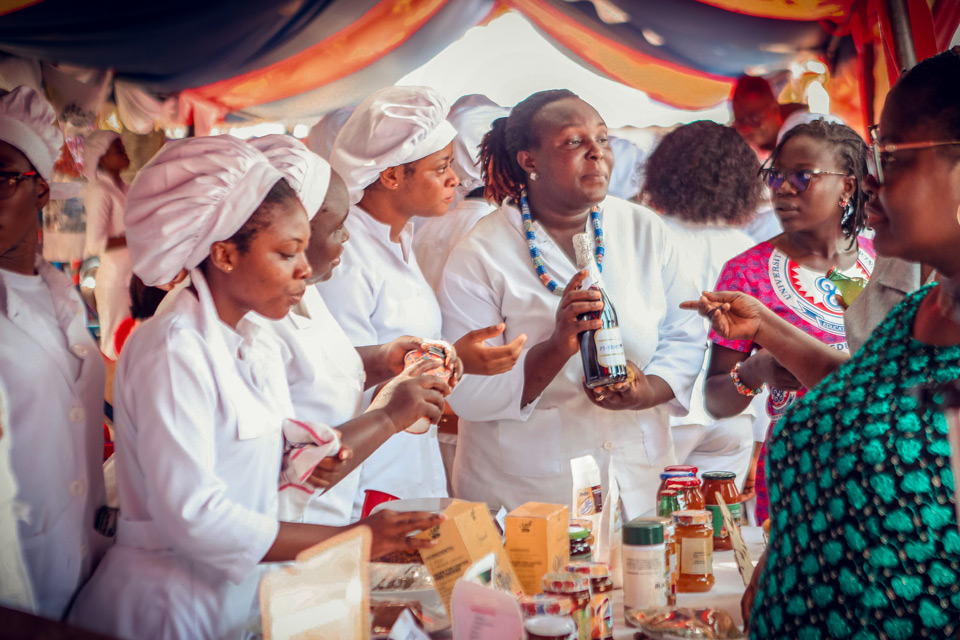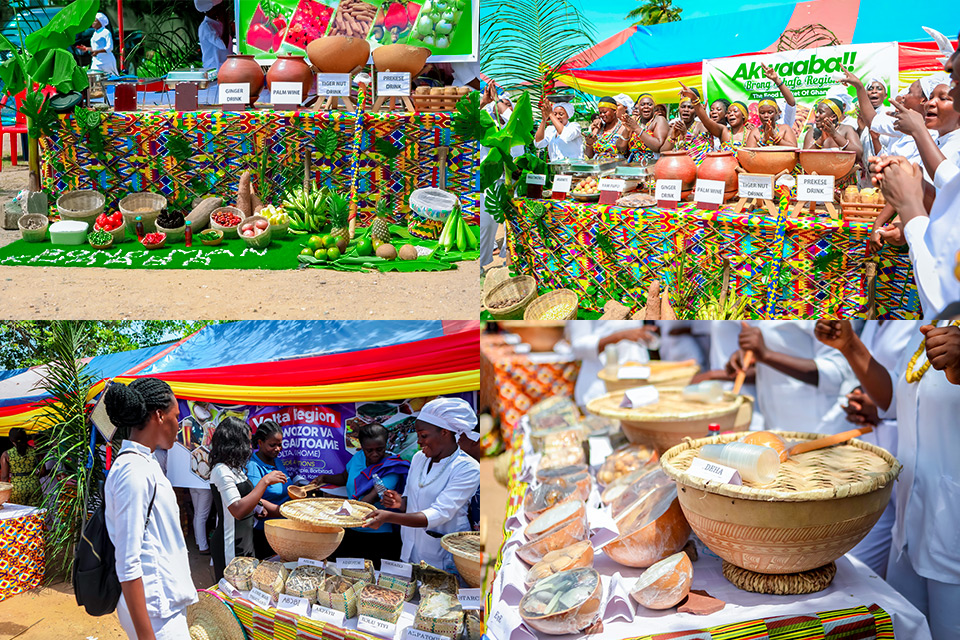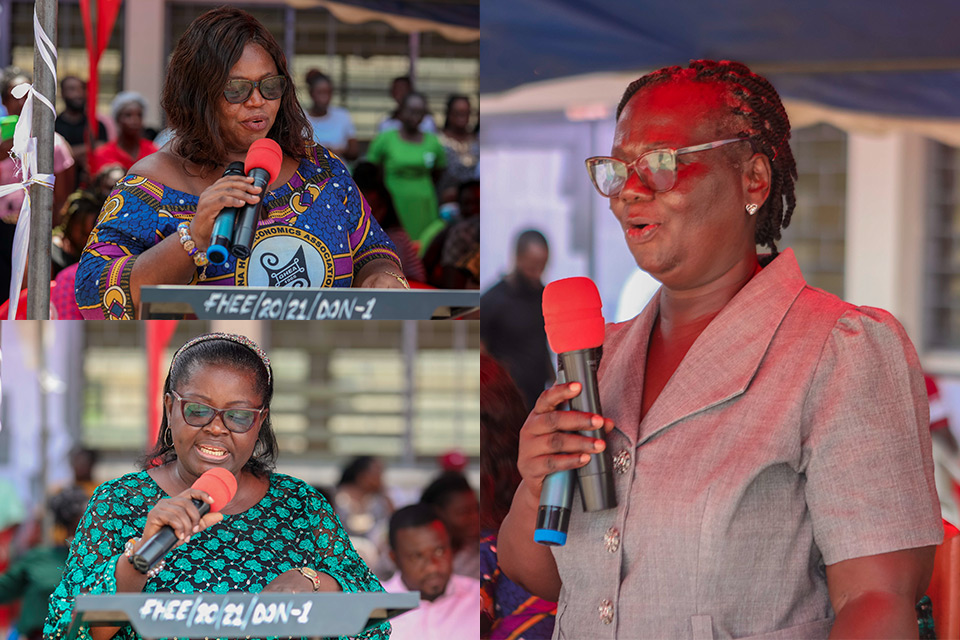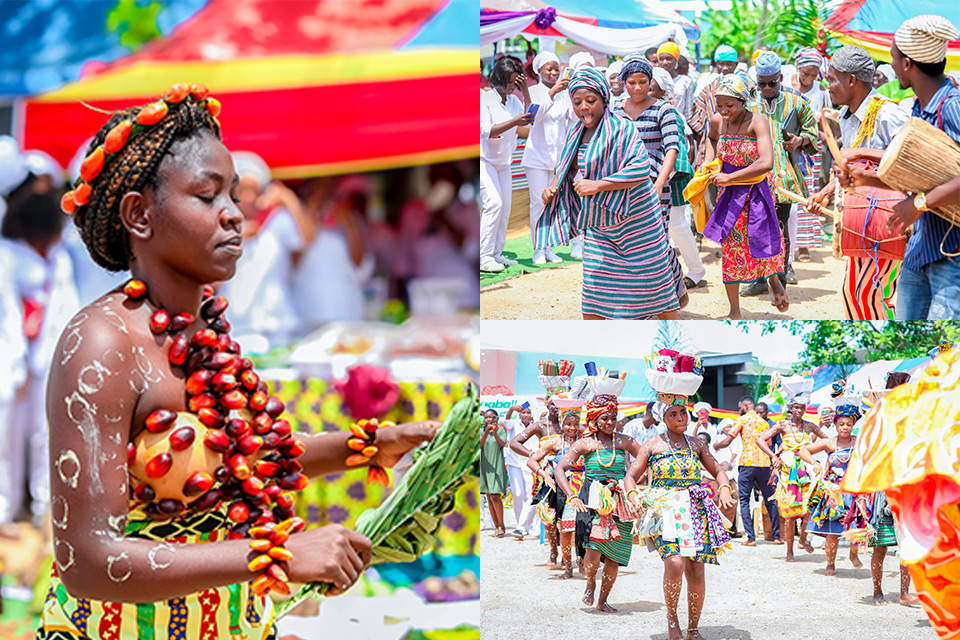Integrated Home Economics Level 300 Students Demonstrate Food Preservation Techniques

As part of the requirements of the end-of-semester examinations for the course, HEC351: Recipe Development and Food Preservation, level 300 students in the Department of Integrated Home Economics Education (DIHEE) have exhibited indigenous food preservation techniques for assessment.
The students showcased their knowledge and skills in developing new recipes while standardising traditional recipes for use in catering establishments nationwide, as well as developing Ghanaian-oriented recipes from underutilised plant species to satisfy the dietary and nutritional needs of vegetarians and toddlers in Ghanaian homes. Among the indigenous drinks and dishes on display were pito, palm wine, tiger nuts, and millet drinks. Others were akple with okro stew, etsew with fantse fantse, ampesi with kontomire, apprapransa, and tↄ.

The food exhibition was held under the theme: “Innovative Preservation and Packaging of Indigenous Ghanaian Food Commodities for Sustainable Food Management and Security. The event took place at the forecourt of the Faculty of Home Economics Education, North Campus, Winneba on Thursday, 9th June, 2022.
Addressing attendees, the chairperson for the ceremony, Prof. Phyllis Forster, said that the COVID-19 pandemic brought to realisation the crucial value of food preservation to the nation.
She went on to say that the seasonal nature of food products in Ghana usually results in a high level of food insecurity and inhibits the ability to keep food products for a longer time than expected.

Prof. Phyllis Forster urged the students to spread the word to their respective communities. She also urged the lecturers to conduct additional studies, publish more research findings, hold workshops, and allow the general people to profit from the research findings to help the country in food supply and preservation.
The Head of DIHEE, Mrs. Victoria Ghanney, in her address, stated that the students are not only trained to impart skills and knowledge in the classrooms but also spread the knowledge to their homes and communities through sensitisation programmes and workshops to inform members about the health benefits of food nutrition and how to cater for themselves.
She added that aside from the students being teachers, they are expected to be caterers, health officials, nutritionists, and ambassadors of food and nutrition when it comes to career opportunities.

The Central Regional Chairperson of the Ghana Home Economics Association, Madam Sarah Baah-Odoom, stated that the introduction of Home Economics into the formal education curriculum has contributed immensely to national development by way of preparing students to be self-sufficient in managing their personal and family lives.
Madam Sarah Baah-Odoom advised the students to remember that the skills and knowledge they have acquired are powerful weapons for securing employment after graduating. “Your contribution to national development should reflect in your ability to demonstrate good skills in solving individual, family, and national problems to dietary practices.”








